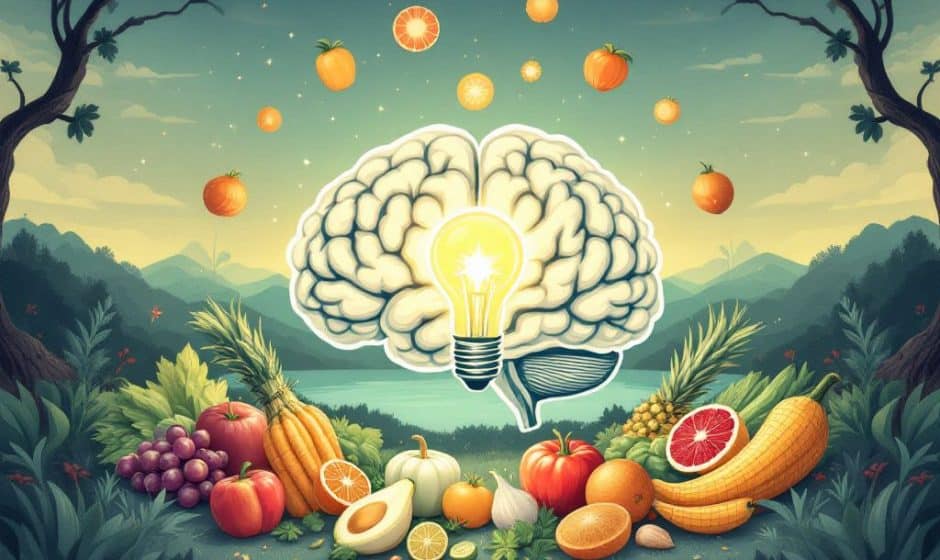Okay, let’s admit it. We’ve all experienced those days when our brains feel like they’ve just checked out for lunch without us. Especially when you’re sitting there, really trying to focus, and it feels like every thought slips away like sand through your fingers. The good ol’ mental fog that can sweep in and bluntly ask you to reschedule your concentration plans. But hey, it doesn’t have to keep being like this.
That’s where the fascinating combo of brain health and hormone regulation comes into play. You might not instantly think of hormones when you consider mental clarity, but trust me, they’re heavy hitters in this arena. Let’s talk about what you can do to keep your brain razor sharp and your hormones humming .
Understanding Brain Health and Hormone Regulation
Before we dive into the neat stuff you can do, let’s lay down the basics. What’s linking brain health to hormone regulation? Simply put: everything. Hormones are those powerful messengers in your body. They’re not just playing around with your mood swings or giving you those late-night hunger pangs.
What Exactly Are Hormones Doing for Brain Health?
Hormones, like adrenaline and cortisol, are central to your stress response, but they also perform quieter jobs. They’re out there regulating mood, energy, and yes, even focus. Meanwhile, brain health is heavily influenced by how well these hormones are in balance. If your brain is the orchestra, hormones are the conductors directing every tiny crescendo and decrescendo, making sure everything harmonizes beautifully.
When hormone regulation is off-kilter—think about too much cortisol (hello, stress!)—you can end up with trashy brain health effects like feeling depressed, anxious, or perpetually foggy.
Identifying Signs That You Need to Improve Your Brain Health
Sometimes it’s a no-brainer (pun intended) that our mental focus needs a little boost. Other times, it might be sneakier, like when you regularly forget where you set your keys or find it hard to parallel park. These are nudges from your body hinting something isn’t entirely right.
- Forgetfulness: If you’re constantly misplacing things or struggling with short-term memory, it can often be tied back to hormone imbalance.
- Lack of Motivation: When your “get-up-and-go” got up and went, it could signal brain health stumbling due to tired hormones.
- Poor Concentration: Inability to focus even on engaging tasks might suggest your brain’s not getting the help it needs from the biochemical world.
Once you know what these signs are, tweaking little habits might be just what you need to drive your brain out of auto-pilot.
The Role of Diet in Hormone Regulation and Mental Focus
So, okay. Brains love food just as much as you do—and not just the sugary stuff. Nutrition can be a game-changer in the world of brain health.

Remember, what you eat does more than fill your belly. It signals hormone releases and feeds your brain the nutrients it needs to thrive. So grab a snack. Let’s chat about food.
Foods that Boost Brain Health and Balance Hormones
- Leafy Greens: Yep, your grandma was right about eating those greens. Spinach, kale, and broccoli are loaded with antioxidants and vitamin K, promoting brain-associated nutrient synthesis.
- Fatty Fish: Salmon, sardines, and mackerel are swimming with omega-3 fatty acids—absolute jackpots when it comes to brain performance.
- Berries: These little heroes are packed with antioxidants that fight oxidative stress, potentially delaying brain aging.
- Avocado: A rich source of vitamin E, this luscious fruit is a prime brain-nourisher, aiding hormone balance and brain health.
- 5. **Nuts: Especially walnuts and almonds—chow down on these, as they contain vital omega-3s and other anti-inflammatory benefits.
Foods to Avoid for Better Hormone Regulation
Sometimes, what you don’t eat is just as critical as what you do. Here’s some intel on items that aren’t doing your mental powers any favors:
- Excess Sugars: Sure, the quick boost is delightful, but sugar can induce energy crashes and disrupt stable mood hormones.
- Highly Processed Foods: Yeah, they make life easy but mess with insulin sensitivity, possibly paving the way to hormonal chaos.
- Trans Fats: Often hidden in processed snacks, these fats are bad news for cognitive health, reducing memory span and flexibility.
You don’t need to flip your entire diet upside down, just pay a bit more attention to how different foods make you feel—in mind, body, and focus.
Exercise: Your Brain’s Best Friend
Not a huge surprise, right? But seriously, exercise reigns supreme when nudging your brain along the healthful path. Even simple, regular movements like walking or yoga carry huge bonuses to brain health.
How Does Exercise Impact Hormone Regulation?
When you move, your brain gets a vitamin-like dose. Exercise prompts the production of hormones like endorphins and lowers cortisol levels—ballpark favorites for reducing stress and cultivating focus.

Types of Exercise to Try
- Aerobic Activity: Pop on your favorite playlist and stroll out for some circuit sprints or joyous jogging. These elevate endorphins.
- Strength Training: A little weight goes a long way in regulating those hormones that boost the mood, thanks to increased testosterone and growth hormone regulation.
- Mindfulness Exercises: Yoga and tai chi? Yes, please. Balancing out cortisol and enhancing mental clarity through gentle mindful movements does wonders.
Remember, the aim isn’t to hit Olympian levels of fitness. Consistency is key. A good sweat is the ultimate reset button for your overworked brain. Give it a try—you just might find it clears the cobwebs excellently.
Sleeping the Brain Bright
Ahh sleep, the underrated guardian of good health. You can munch on all the almonds you like and become a sprinting fiend, but neglect your zzz’s, and you’ll find yourself back at square one.
The Sleep-Hormone Connection
Your sleep kinda gives your brain a good scrub—a deep clean, if you will. It’s the time when the brain literally flushes out toxins. Sleep affects key hormones regulating concentration like melatonin and ghrelin. Missing out messes with these messages, straight up interfering with your focus the following day.
Tips for a Restful Night
- Create a Routine: Have a bedtime ritual? Give it another polishing. Be it light stretching, reading, or a cozy bath—signals your body it’s sleep-time.
- Dim the Lights: Sounds simple, but light plays a huge role in hormone regulation via melatonin. Dimming your space helps set the stage for deeper sleep.
- Say No to Late-Night Tech: Technology emits blue light, which suppresses melatonin. Cut it out an hour before calling it a night.
Just pretend sleep is that magical elixir you barely hear about. It holds up weighty keys to unlocking top-tier cognitive performance.
Stress Management: Smoothing Out Mental Waves
At this point, we all know stress plays havoc with both brain health—ending up putting your poor nerves on fray-edge. But managing stress, understanding it as hormone imbalance-induced noisemaker, can calm those waves for better focus.

Easy Ways to Reduce Stress
- Breathe: Slow, deep breathing is your stealthy hero here. Puts the brakes on cortisol production fast.
- Stay Connected: Hang out with support buddies or plug into community events to chat it all out—a classic mood booster. Human connection positively impacts oxytocin release, a peerless tonic for stress relief.
- Mindfulness Meditation: Allocate a few moments daily. Frame it like mental housekeeping. Calms run-away thoughts beautifully.
You see where we’re circling back? Your body and mind: endless allies when given understanding, and little restorative actions.
Supplements to Consider for Brain Health
Sure, the essentials rely on food, exercise, and non-negotiable nap-times. Enter the supplementary reinforcements as backup options for a targeted boost.
Supplements that Matter
- Fish Oil: Benefits neuron function, nurturing brain health.
- Curcumin: An inflammation-fighter often found in turmeric, enhancing both mood and cognitive function.
- Bacopa Monnieri: Used for centuries in traditional medicine, facilitates improved memory and learning.
- Ginseng: Assists in sharpening focus, hiking up brain functions with elemental efficiency.
If you’re visualizing a handful of pills—don’t sweat it. Start simple. Consult a health professional to see where you might optimize without substituting foundational lifestyle habits.
Putting It All Together: Your Brain Health Map
We’ve talked food, workouts, stress, sleep, and even dabbled in some supplements. But it’s the consistent, daily attention weaving these into your routines that serves you the key to clearer focus and effortless acts of attention.
- Choose whole foods. Nourish intelligently.
- Move regularly. Make space for enjoyable activities.
- Get deep rest. Cherish sleep without guilt.
- Tackle stress artfully. Be gentle with yourself.
Ending this kind of conversation feels like saying both everything and barely scratched surface. That’s how broad and freeingly deep a topic as delightful as this goes. Follow through at your comfy pace to a brighter state where fog lifts naturally, making room for sunshine moments locked within nimble mental dexterity. Trust me, every little tweak holds its weight in comfortable headlights.
You got this—it just takes a bit of focus.
Frequently Asked Questions
What causes a hormonal imbalance?
A hormonal imbalance can be caused by natural changes or stages in your life, including puberty, pregnancy, perimenopause, and menopause. Additionally, hormone levels can dramatically decrease after a partial or full hysterectomy, and other factors such as tumors, adenomas, or autoimmune diseases can also contribute to hormonal imbalances[3][5].
How does hormone replacement therapy (HRT) work for hormone regulation?
Hormone replacement therapy works by topping up or replacing missing hormones. During perimenopause and menopause, levels of oestradiol, progesterone, and sometimes testosterone decline. HRT involves prescribing these hormones, often in the form of patches, gels, sprays, or pills, to improve symptoms and future health outcomes[1][3].
What are the common signs and symptoms of a hormonal imbalance?
Common signs and symptoms include irritability and fatigue, mood swings and depression, skin dryness and loss of elasticity, water retention and weight gain, osteoporosis and joint pain, less interest in sex, insomnia and other sleep disorders, and memory issues and difficulty concentrating[3][5].
What are the different types of hormone replacement therapy available for hormone regulation?
Hormone therapy includes systemic hormone therapy (in pill form, patches, rings, gels, creams, or sprays), low-dose vaginal products (focusing on vaginal and urinary symptoms), and bio-identical hormone replacement (products identical in structure to human hormones). The type of HRT is often individualized based on health and preferences[1][3].
References



